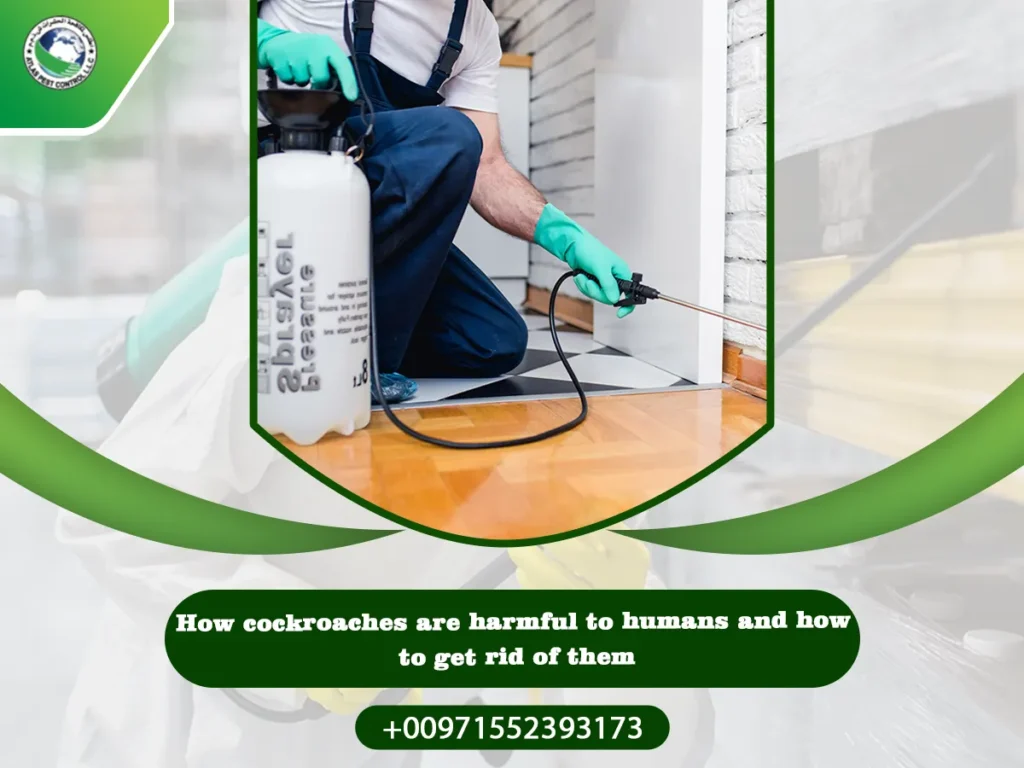The best home methods to get rid of cockroaches Cockroaches are notorious for being one of the most common and resilient household pests, capable of thriving in a wide range of environments The best home methods to get rid of cockroaches. Their presence is not only disturbing but also poses significant health risks, as they can carry harmful bacteria and allergens that may lead to various illnesses. As a result, The best home methods to get rid of cockroaches effectively eliminating these unwelcome intruders is crucial for maintaining a healthy living space.
While professional pest control services offer effective solutions, The best home methods to get rid of cockroaches many homeowners prefer to use natural and home-based remedies for various reasons, including cost-effectiveness and safety. The best home methods to get rid of cockroaches This article will delve into the best home methods to get rid of cockroaches, equipping you with practical tips and strategies to create a pest-free environment. The best home methods to get rid of cockroaches From simple preventive measures to DIY traps and repellents, these methods can help you combat existing infestations and prevent future occurrences. Whether you’re facing a small number of cockroaches or looking for ways to safeguard your home against these persistent pests, our comprehensive guide will empower you to reclaim your space and ensure it remains comfortable and clean.

محتويات المقال :
10 Most Effective Home Remedies to Get Rid of Cockroaches
Cockroaches are among the most unwelcome pests in any household. Renowned for their resilience and rapid reproduction, these insects can pose health risks by triggering allergies and asthma. While professional pest control services are certainly effective, many homeowners prefer to try natural and budget-friendly home remedies first. In this article, we will discuss ten of the most effective home remedies for eliminating cockroaches, empowering you to reclaim your living space and create a healthier environment.
1. Boric Acid:
Boric acid is one of the most widely used and effective home remedies for dealing with cockroaches. When cockroaches come into contact with boric acid, it disrupts their digestive systems, ultimately leading to their demise. To utilize boric acid effectively, mix it with sugar to attract the cockroaches, and then sprinkle the mixture in areas where you have observed their presence. However, it’s crucial to keep this mixture out of reach of children and pets.
2. Baking Soda and Sugar:
Another highly effective remedy is the combination of baking soda and sugar. The sugar serves as an attractant, while the baking soda reacts with the acid in the cockroach’s stomach, leading to its death. To use this remedy, simply mix equal parts of baking soda and sugar, and sprinkle the mixture in areas frequented by cockroaches.
3. Soap and Water Spray:
A simple yet potent solution for cockroaches is a soap and water spray. This mixture works by suffocating cockroaches, as it blocks their breathing pores. To create this remedy, combine a few drops of liquid soap with water in a spray bottle and spray directly onto any cockroaches you encounter.
4. Diatomaceous Earth:
Diatomaceous earth, a natural powder derived from the fossilized remains of tiny aquatic organisms, is safe for humans and pets but deadly for cockroaches. When these pests come into contact with the powder, it damages their exoskeletons and leads to dehydration. To use diatomaceous earth effectively, sprinkle food-grade powder in areas where cockroaches are likely to hide.
5. Essential Oils:
Certain essential oils, including peppermint, lavender, and tea tree oil, can act as natural repellents against cockroaches. These pests tend to dislike strong odors. By mixing a few drops of essential oil with water in a spray bottle, you can create a deterrent spray. Apply this solution in areas where cockroaches are commonly found, as well as at potential entry points.
6. Vinegar:
Vinegar is a versatile household product that can help repel cockroaches due to its strong smell. To use vinegar as a remedy, mix equal parts of vinegar and water in a spray bottle, and apply it to surfaces and areas where cockroaches are present. Additionally, using vinegar for cleaning countertops and floors can eliminate food residues that attract these pests.
7. Coffee Grounds:
Surprisingly, cockroaches are also deterred by coffee grounds. Placing used coffee grounds in areas where cockroaches have been spotted can serve as a natural repellent. Furthermore, the scent of coffee can help mask other odors that may attract these pests.
8. Cucumber Slices:
Cucumbers have been recognized as an effective natural deterrent for cockroaches. The scent emitted by cucumbers is particularly unappealing to them, making it beneficial to place cucumber slices in areas where you’ve seen cockroaches. Just remember to replace the slices regularly to maintain their effectiveness.
9. Bay Leaves:
Not only are bay leaves used in cooking, but they can also help keep cockroaches away. By placing dried bay leaves in cabinets, pantries, and other infested areas, you can take advantage of their strong aroma to deter cockroaches. Additionally, bay leaves can serve as a preventive measure against future infestations.
10. Proper Sanitation:
While it may not be a traditional remedy, maintaining proper sanitation is crucial in preventing cockroach infestations. Regularly cleaning your home—sweeping floors, wiping surfaces, and removing food debris—can significantly lower the chances of attracting cockroaches. Additionally, sealing cracks and crevices in walls and floors will help block their entry points.

What Attracts Cockroaches to a Clean Home?
Cockroaches are often regarded as unwelcome intruders that can invade even the most meticulously maintained homes. Many individuals believe that a spotless living environment will deter these pests. However, cockroaches are highly resilient and opportunistic creatures, capable of entering homes regardless of their cleanliness. In this article, we will examine the various factors that can attract cockroaches to a clean home, helping you to take better measures to protect your living space.
.Food Sources:
- Despite your best efforts to keep a clean home, food sources can still unintentionally attract cockroaches. While you may regularly clean surfaces and promptly wipe up spills, crumbs and food residues can accumulate in hidden places such as behind appliances, under furniture, and within cabinets. Moreover, leaving pet food out can significantly entice cockroaches. To reduce this risk, store all food in airtight containers and ensure that pet food is removed promptly after each meal.
.Moisture and Humidity:
- Cockroaches are particularly drawn to moisture, making humid environments especially appealing. Even in a clean home, moisture can linger in areas like bathrooms, kitchens, and basements. Issues such as leaky pipes, condensation on windows, and standing water in sinks create inviting conditions for cockroaches. Therefore, it is crucial to address plumbing issues quickly and use dehumidifiers in damp areas to lower humidity levels.
.Hiding Places:
- The presence of hiding spots can also lead to cockroach invasions in a clean home. Even well-maintained spaces may have cracks in walls, gaps around windows and doors, and clutter that provide ideal shelter for cockroaches. Additionally, cardboard boxes and paper bags can attract them as they seek refuge. To mitigate this risk, seal any openings and minimize clutter, thereby reducing potential hiding spots.
.Temperature:
- Cockroaches thrive in warm environments, and a well-heated clean home can inadvertently attract them. During colder months, these pests may seek warmth indoors, particularly in areas near heat-generating appliances. Therefore, it is essential to monitor your home’s temperature and ensure that warm areas do not create an inviting environment for cockroaches.
.Outdoor Access:
- Even the cleanest homes can have entry points that allow cockroaches to invade. Open doors and windows, as well as cracks in foundations or walls, can serve as gateways for these pests. Overgrown vegetation near your home can also provide a pathway for cockroaches. To reduce this risk, keep doors and windows closed and maintain well-trimmed landscaping.
.Improper Waste Management:
- improper waste management can attract cockroaches, even in a clean home. If garbage cans are not tightly sealed or food waste is left exposed, it can create an inviting atmosphere for these pests. To counter this issue, always use sealed containers for trash and dispose of waste regularly to eliminate potential food sources.

How harmful are cockroaches to humans
Cockroaches are widely regarded as one of the most unwelcome pests in our homes. While many may view them as mere annoyances, these creatures can pose significant health risks. This article delves into the harmful effects of cockroaches and offers effective strategies for eliminating them from your living spaces.
.The Harmful Effects of Cockroaches:
- Allergens and Asthma Triggers
One of the most alarming aspects of cockroaches is their potential to trigger allergies and asthma attacks. According to the American Academy of Allergy, Asthma, and Immunology, the droppings, saliva, and body parts of cockroaches contain proteins that can provoke allergic reactions in sensitive individuals. These allergens can easily become airborne, leading to respiratory problems, particularly in children and individuals with pre-existing health conditions. - Disease Transmission
Cockroaches are notorious carriers of various pathogens and can spread diseases through contamination. They often crawl over food, utensils, and kitchen surfaces, leaving behind harmful bacteria. Studies have shown that cockroaches can transmit diseases such as Salmonella, E. coli, and even parasitic worms. Consequently, their presence in a home poses a serious threat to food safety and public health. - Contamination of Food and Surfaces
Beyond their role in disease transmission, cockroaches can contaminate food and kitchen surfaces with their feces and bodily fluids. This not only compromises food safety but can also lead to unpleasant odors and unsanitary conditions in the kitchen. Therefore, maintaining a cockroach-free environment is crucial for your health and well-being.
.Effective Strategies to Get Rid of Cockroaches:
- Maintain Cleanliness
The first line of defense against cockroach infestations is cleanliness. Regularly sweeping floors, wiping down surfaces, and promptly cleaning spills can significantly reduce the chances of attracting these pests. Pay special attention to areas like kitchens and bathrooms, where food and moisture tend to accumulate. - Seal Entry Points
To prevent cockroaches from entering your home, it’s essential to seal any potential entry points. Check for gaps around windows, doors, and pipes, and use caulk or weather stripping to close these openings. This will create a barrier and minimize the likelihood of cockroaches finding their way inside. - Use Traps and Baits
In addition to preventive measures, using traps and baits can help eliminate existing cockroach populations. Sticky traps can capture cockroaches, allowing you to monitor the level of infestation. Meanwhile, baits containing insecticides are effective because they attract cockroaches, leading to their demise upon ingestion. Be sure to place these traps and baits in areas where cockroaches are frequently spotted. - Explore Natural Remedies
If you prefer natural methods, several remedies can effectively repel cockroaches. For example, a mixture of baking soda and sugar can attract cockroaches while the baking soda kills them when ingested. Additionally, essential oils like peppermint and tea tree oil can act as natural repellents. Simply mix a few drops with water and spray it in areas where cockroaches are commonly seen. - Seek Professional Pest Control
If your attempts to eliminate cockroaches prove ineffective, it may be time to enlist the help of professionals. Pest control experts have access to specialized treatments and can assess your home for underlying issues contributing to infestations. They can implement targeted solutions to safely and effectively eliminate cockroaches.

The best home methods to get rid of cockroaches: Effective Home Solutions
Cockroaches are notorious pests that can invade our homes, causing not only distress but also potential health risks. While various chemical treatments are available, many homeowners prefer natural remedies due to their safety and effectiveness. In this article, we will explore some of the best natural remedies for cockroaches and how to implement them effectively.
.Baking Soda and Sugar:
One of the most effective natural remedies for cockroaches is a simple mixture of baking soda and sugar. In this combination, baking soda acts as a lethal agent, while sugar serves as an attractant. To use this remedy, mix equal parts of baking soda and sugar, then place the mixture in shallow dishes in areas where cockroaches are commonly seen. When cockroaches consume this mixture, the baking soda reacts with their stomach acid, ultimately leading to their demise. Additionally, this remedy is safe for use around children and pets, making it a great choice for families.
.Diatomaceous Earth:
Another highly effective natural remedy is diatomaceous earth (DE). This powdery substance, made from tiny fossilized algae, is non-toxic to humans and pets but lethal to insects. When cockroaches come into contact with diatomaceous earth, the sharp edges of the particles penetrate their exoskeletons, causing dehydration. To use this remedy, sprinkle food-grade diatomaceous earth in areas where cockroaches frequent, such as along baseboards, behind appliances, and in cracks and crevices. It’s crucial to ensure that the powder remains dry for optimal effectiveness.
.Essential Oils:
Essential oils provide another effective natural remedy for cockroaches. Oils like peppermint, tea tree, and eucalyptus possess strong scents that repel these pests. To create a simple repellent spray, mix a few drops of your chosen essential oil with water in a spray bottle. Spray this mixture in areas where you suspect cockroach activity. Not only will this help deter cockroaches, but it will also leave your home smelling fresh and pleasant. Furthermore, essential oils are safe for use around children and pets.
.Soap and Water Solution:
A soap and water solution is an effective method for combating cockroaches. When sprayed directly on them, the soap clogs their spiracles (breathing pores), ultimately suffocating them. To make this remedy, mix a few drops of liquid soap with water in a spray bottle. Spray the solution on any visible cockroaches to eliminate them on contact. While this remedy provides immediate results, it is best used in conjunction with other preventive measures to control future infestations.
.Bay Leaves:
Bay leaves, a popular culinary herb, also serve as a natural cockroach repellent. The strong scent of bay leaves is known to deter cockroaches from invading your kitchen and pantry. To use this remedy, place dried bay leaves in cabinets, drawers, and other areas where you store food. You can also crush the leaves to release their essential oils, enhancing their repellent properties. While this remedy may not eliminate existing cockroaches, it can help prevent future infestations.


